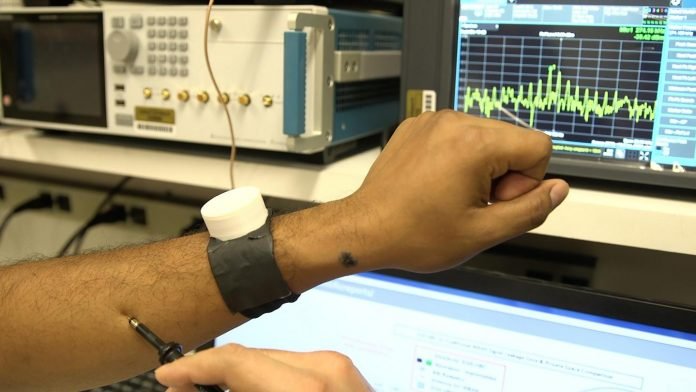
In a new study, researchers found a new way to protect people’s pacemaker and other health devices from being hacked.
The research was conducted by scientists from Purdue University.
Nowadays many people are connecting more and more devices to their body network.
It includes smartwatches, fitness trackers and head-mounted virtual reality displays.
It is hard to keep this communication only within the body while getting higher bandwidth and less battery consumption.
Previous studies have shown that hackers could hack into pacemakers or insulin pumps just by intercepting and analyzing wireless signals.
This can greatly threaten people’s lives.
In the current study, the team found a new way to prevent crime before it really happens.
The new tech keeps communication signals within the body itself, so the internet of the body is only accessible by the user and the user’s devices.
The new tech can make human body communication occur more securely.
For example, the signal will not go beyond a centimeter off the skin and the tech only uses 100 times less energy than traditional Bluetooth communication.
The new tech can be achieved through a device that couples signals in the electro-quasistatic range that is lower on the electromagnetic spectrum.
With that device, the user can receive a signal from anywhere on the body. The thickness of skin or hair will not influence the signal strength.
The team suggests their new tech could help doctors reprogram medical devices without invasive surgery.
It may also help with bioelectronic medicine and high-speed brain imaging for neuroscience applications.
The leader of the study is Shreyas Sen, an assistant professor of electrical and computer engineering at Purdue.
The study is published in Scientific Reports.
The technology has received multiple patents through the Purdue Research Foundation Office of Technology Commercialization.
Copyright © 2019 Knowridge Science Report. All rights reserved.



